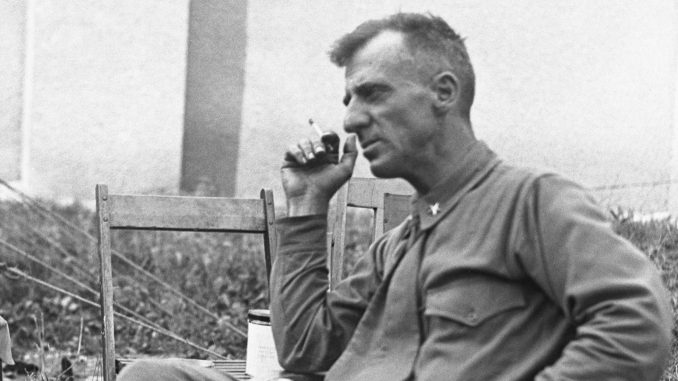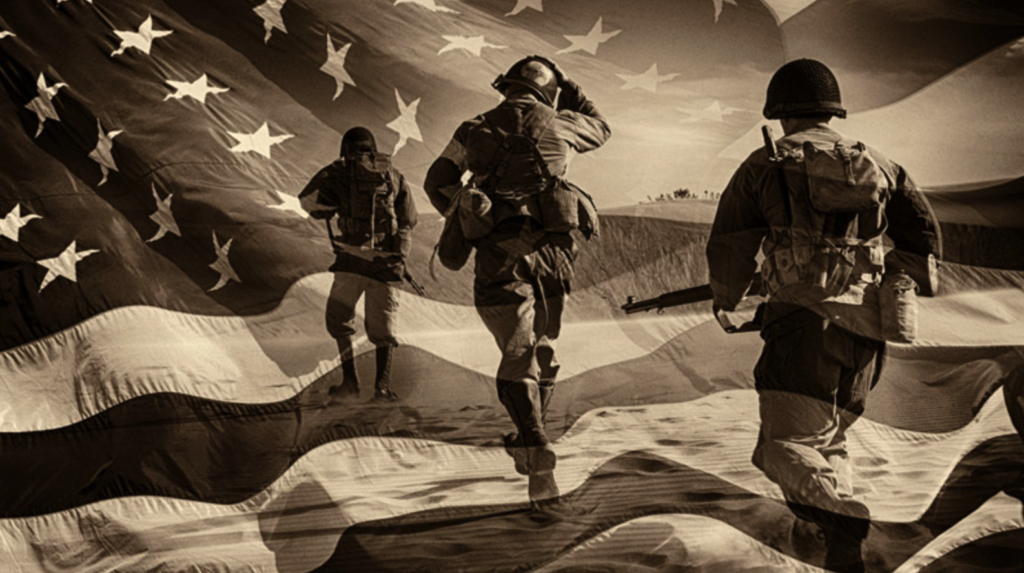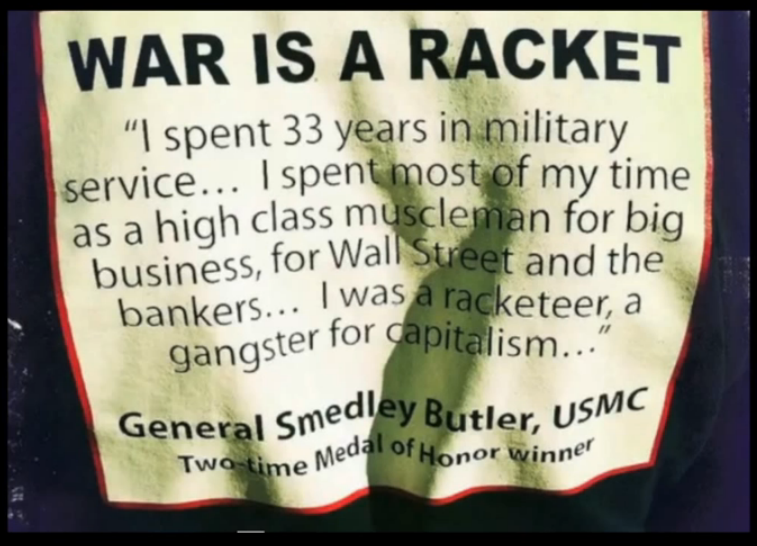
Original Article by Scott Ritter
Smedley Butler, a two-time recipient of the Congressional Medal of Honor and former US Marine Corps major general, famously observed that “war is a racket.”
Speaking about his 33 years in the service of his nation, Butler noted that he “spent most of my time being a high-class muscle man for Big Business, for Wall Street and for the Bankers. In short, I was a racketeer, a gangster for capitalism.”
Unfortunately, Butler’s words, written in reflection of his service in the early 1900s, resonate today as well.
It didn’t have to be this way. But with globalists pulling the strings on the puppets of the world, it is. The men who have served have mostly done so with pride and a belief that they were serving to protect the American way of life and all its virtues. But, unfortunately these honorable men and women have been used as (pawns) tools to accomplish control under the direction of dishonorable and compromised “leaders.” (Globalists)
In the post-Vietnam era, especially under the leadership of President Ronald Reagan, America began to fall in love with its armed forces again. At least the attitude was beginning to move away from disgust and total hatred of any man who served in the Vietnam war.
There was pride among those who served, a sense of patriotic duty that was gradually embraced by the American public.

In May 1990, I participated in the Armed Services Week activities in Washington, DC, leading up to Armed Services Day by manning a display on the Capital Mall about the work of the On-Site Inspection Agency in disarming the nuclear arsenals of both the US and Soviet Union.
There was genuine interest amongst the hundreds of people who stopped by to learn more about our work.
In May 1991, following the American success in the Gulf War (in which I was a participant), patriotism was at an all-time high, and the Armed Forces Day celebrations seemed to reflect a genuine feeling of respect and admiration of those who served by those they ostensibly defended.
But nothing lasts forever—as the quote from the movie “Gladiator” astutely observes, “the mob is fickle.”
As long as the Gladiator is capable of standing in the center of the Colosseum, shouting at the crowd, “Are you not entertained?” he will have a place in society.
But as soon as the Gladiator becomes inconvenient to the psyche of those he “entertains,” the crowd becomes displeased, and the Gladiator is readily forgotten.
The 1991 Gulf War was easy entertainment—a massive display of military power, a decisively defeated, easily identified foe, all at an extremely low cost in lives—154 combat deaths.
The cause these men and women gave their lives for—the liberation of Kuwait—was soon forgotten as America became embroiled in a decades-long effort to unseat Saddam Hussein, the president of Iraq, from power.
The horrific events of 9/11 allowed Americans once again to rally around those who served in the armed forces.
In the aftermath of the terrorist attack on America, the nation looked to those men and women in uniform to save them from an enemy few could identify, and even fewer understood.
This blind faith in the government to use the armed forces for a cause the American people could identify with, however, was spoiled by those in government who abused this resurgence in patriotic fervor to settle scores with Saddam Hussein, diverting resources from the primary mission of defeating the forces of global terror who had attacked America, and instead getting involved in an illegal war of aggression fought on the basis of falsified intelligence for purposes that had everything to do with promoting American geopolitical power and nothing to do with protecting America.
War, it seems, is a racket after all. More than 20 years on, America struggles to define its relationship with those who wear the uniform of the armed forces of the United States.
The global struggle against terrorism has dissipated, reaching its ignominious conclusion in the precipitous withdrawal of US forces from Kabul, Afghanistan, in August 2021.
Today the United States is facing off against two global powers, Russia (in Ukraine) and China (in Taiwan).

The scope and scale of great power conflict is, to quote US General Christopher Cavoli, the Supreme Allied Commander in Europe, “beyond the imagination” of most Americans to comprehend.
20 years of low-intensity conflict has conditioned most Americans to view conflict as a video game, a live-action version of “Call of Duty,” where death is minimized as little more than digital entertainment.
The proxy-war in Ukraine has shown this to be the lie those who knew war firsthand always recognized it to be. Hundreds of thousands of dead, tens of millions of displaced, trillions of dollars of resources lost or destroyed—all in the space of little more than a year.
As America celebrates Armed Forces Day, one would hope that the sacrifice that would be entailed by those we ostensibly honor in waging a conflict against either Russia or China would weigh heavily on the minds of the American people.
Is it the task of the American servicemember to defend an odious neo-Nazi regime in Ukraine, or provoke China over the issue of Taiwanese independence?
Is America destined to be the world policeman, and if so, what laws are we enforcing? The United Nations Charter? Or our own “rules-based international order” which, upon closer scrutiny, is little more than the same system Smedley Butler had astutely warned about so many years ago.
The American style of war has become little more than a racket, and those who prosecute it racketeers.
This is not the relationship between the armed forces and the citizens of America that President Harry Truman envisioned when creating Armed Forces Day back in 1949. We, the people, would do well to reflect on the present state of affairs, and take corrective action, before the original intent of the holiday is lost to us forever.






 Donate
Donate
Be the first to comment